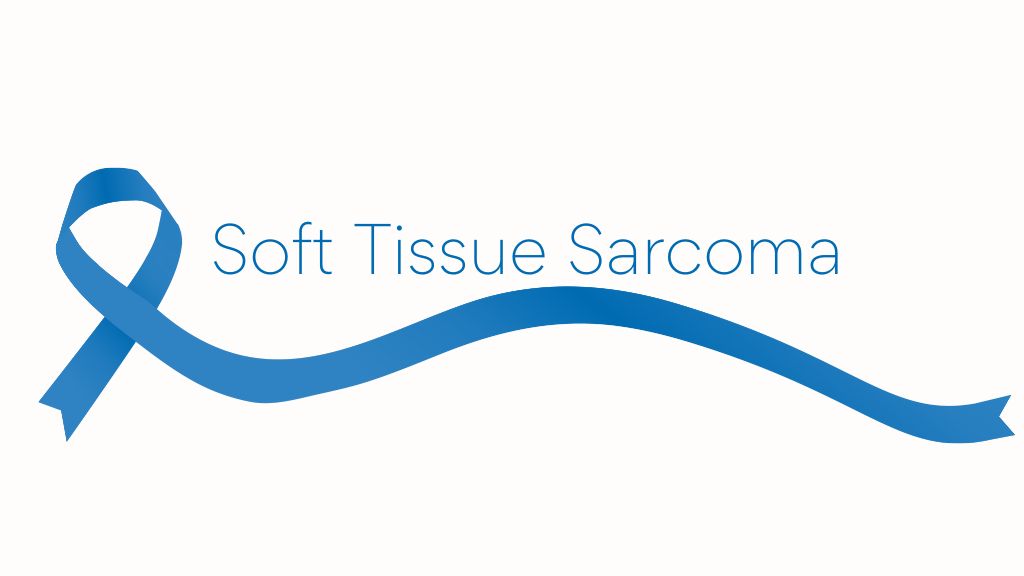
Soft Tissue Sarcoma
Soft tissue sarcoma is, in general, a very rare, highly aggressive, and fairly complex form of cancer that arises in the tissues connecting, supporting, or surrounding other structures and organs of the body. These tissues include muscles, fat, blood vessels, nerves, tendons, and lining of the joints. It is a very heterogeneous cancer grouping, comprising many subtypes, one of which is synovial sarcoma cancer, thought to be one of the worst forms of sarcoma to treat. A timely diagnosis and knowledge of treatment options play a very important role in the outcomes and quality of life; this can include surgery, chemotherapy, and radiation.

Overview
Soft tissue sarcoma is a rare type of cancer. It develops in tissues that connect, support, and surround various structures and organs of the body. These tissues include muscles, fat, blood vessels, nerves, tendons, and lining of your joints. Among the many types, synovial sarcoma is one of the more challenging cancers. It is very important for patients and their families to understand the treatment options and care after treatment.

Symptoms
- Visible Lump or Swelling
This is one of the very common signs of soft tissue sarcoma if a person has developed a lump or swelling that gradually increases in size over time. These lumps mostly occur in the arms or legs, though they can appear anywhere in the body.
- Pain and Discomfort
Pain may result from the pressure that the tumor would exert on nerves or muscles. The pain is mild to severe and can continue to get worse.
- Limited Movement
If the sarcoma is close to a joint, one may experience stiffness and reduced mobility, thus hindering the regularity of motion.

Diagnosis
Soft tissue sarcoma needs early and proper diagnosis. The diagnosis includes:
- Physical Examinations:
It involves a good physical examination for discovering any abnormal lumps or swelling and determining the extent of the tumor.
- Imaging Tests:
This includes MRI, CT scans, and X-rays. These will show clear pictures of the affected area that will establish the size, location, and extent of the tumor.
- Biopsies:
A sample of tissue is removed from the suspected tumor and looked at under a microscope for cancer cells, also to determine the type of sarcoma.

Treatment Options
The main line of treatment to remove the tumors in soft tissue sarcoma is surgery. It aims at eradicating the cancerous tissues while as much of the normal surrounding tissue is preserved as possible. Techniques include:
- Wide Local Excision with Reconstruction:
This entails removing the tumor and a margin of healthy tissue to ensure the removal of all the diseased tissue. Reconstruction might be necessary to restore appearance and functioning ability.
- Chemotherapy:
Chemotherapy involves strong drugs that kill or slow the growth of cancer cells. It may be conducted before surgery, to reduce the size of the tumor, or after surgery to destroy any remaining cancer cells.
- Radiation:
Radiation therapy involves high energy rays that destroy the cancer cells. It is performed prior to surgery to reduce the size of the tumor, or after surgery to prevent re-development of the tumor.

Post-Treatment Care
Comprehensive post-treatment care ensures optimal recovery and long-term health:
- Follow-up care:
Follow-up with the doctor In accordance with the treatment plan, a patient needs to have follow-up appointments with his doctor for checking the recurrence. Follow-up appointments usually include physical examinations apart from imaging and laboratory tests.
- Diet:
A well-balanced diet, which should include plenty of fruits, vegetables, lean protein, and whole grains, will allow a person to recover and maintain good health. One must not forget to drink enough water.
- Exercise:
Moderate exercise is acceptable to maintain muscle mass and flexibility. However, it is best to consult your doctor before starting any exercise regime.

FAQs
Q: What is the success rate for soft tissue sarcoma surgery?
A: Success rates vary depending upon such factors as the size and location of the tumor and general health, but usually, surgery is successful in controlling the localized sarcomas.
Q: Does soft tissue sarcoma grow back after surgery?
A: It can recur locally. Therefore, follow-up care after treatment is very important to check if the cancer has recurred.
Q: What is the recovery time after surgery?
A: The time taken to recover varies, although most patients need a few weeks to even months after surgery, depending on the complexity of the surgery and, generally, the health status of the patient.
Q: What other treatments can treat soft tissue sarcomas?
A: Treatments apart from surgical intervention include chemotherapy and radiation. Modality of treatment depends on individual cases and needs to be discussed with your oncologist.
Q: How can I support a loved one going through soft tissue sarcoma treatment?
A: It is, thus, an emotional, practical, and supportive role that really makes a difference. It means giving them the emotional support required, help with daily tasks, and motivation to abide by their prescribed treatment and post-treatment care
Get the Best Colon Cancer Surgeon in
Hyderabad with One Call.
Contact Us: 9666565040

DR SARATH KUMAR REDDY A
MBBS, MS (Gen.Surgery), FMAS, MRCS (Edin), FIAGES, FRCS (UK) (Colorectal Surgery), FALS (Robotic Surgery), FALS (Surgical Oncology)
Sr. Consultant - Surgical Oncology
Laparoscopic & Robotic Surgeon
Surgical Oncology
Language Known:
- Hindi
- Telugu
- English
- 20 years of extensive experience
- Successfully performed 3500+ surgeries including open, laparoscopic and robotic techniques
- Trained from premier institutions in India and the UK
- Gold medallist- Osmania Medical college, Hyderabad
Our Expertise
Specialization in
Patient Reviews
This is what our patients have to say about us.











